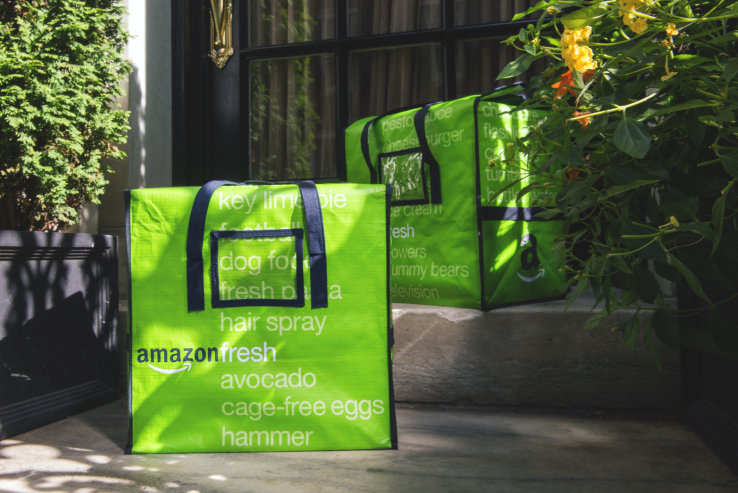
Amazon is taking a huge bite out of the fresh food business with its bid for Whole Foods Market for $13.7 billion. But even though this is a deal between two companies, it’s not just the two of them being touched by it.
The intersection between the food and tech industries has been playing out for years now, sprouting dozens of food startups; efforts from large tech companies to move into food; and strategies from large food players tapping tech to make sure they don’t miss out on the next wave of consumers and how they are choosing to shop. Here’s a look at how some of the biggest and most prominent of these, plus a few others, might be impacted by today’s news:
Instacart
This startup, founded at Y Combinator in 2012, blazed a trail in the US at a time when very few grocery stories offered delivery, by providing a way to shop through an app and get everything brought to your door. It’s positioned itself as an Amazon competitor, the business is making good returns in its biggest markets, and investors believe in Instacart: the startup has raised nearly $675 million and is now valued at $3.4 billion.
Now here is the key: one of its investors and grocery store partners is none other than Whole Foods.
In other words, the company that was Instacart’s prime competition will become a shareholder should the Whole Foods acquisition close. The question, then, will be how Amazon chooses to handle this: it could buy the company outright and knock it out as competition. Or it could hold on to its stake as a financial investment, while at the same time transferring all of Whole Foods’ delivery business to… Amazon Prime.
That may not happen so quickly. There are four years left on the Whole Foods distribution partnership, noting that a source said Amazon’s purchase would not affect that arrangement.
What this potentially does is put Instacart in the position of becoming an acquisition target itself. Possible buyers: those who are would-be Amazon competitors, such as Costco or Walmart. It could also make Instacart more strategically appealing as a delivery partner to more grocers if the Whole Foods partnership is disrupted.
Indeed, that’s the tack that the market is likely to take, according to a person with knowledge of the Instacart’s plans. Rather than allow its arch-rival to keep a stake in the company, Instacart will look to buy back that stake that Amazon owns (which is less than 1% of the company).
By the end of the year, Instacart will service roughly 80% of the U.S. market and the company has been rolling up big deals in the last week. It signed up or expanded its agreements with Publix, Wegmans, and Ahold Delhaize. Also worth noting that Whole Foods accounts for less than 10% of revenue for Instacart, the person said.
There have been some hiccups along the company’s path: As Instacart has grown, it has faced a ton of costly backlash from contractors and customers who have been frustrated with its lack of pricing transparency. But still, it is growing and has built something that more than Amazon will want to have.
Google Shopping
Google was early in its moves back in 2013 to square up to Amazon with Google Shopping Express. It moved into more food eventually, and slowly expanded its partnerships. One of those partnerships is with Whole Foods. With Amazon as an owner, one probable outcome would be Whole Foods transferring its deliveries to Amazon and away from Google.
Could this mean that Google will be looking for more food stores as partners? Will it expand what it delivers from other partners like Costco and Target?
Amazon is feeling like an increasingly powerful force in the world of commerce. That could also spell an opening for smaller grocery stores that have little or no online presence. Feeling shut out of the game in mega-deals, those stores may suddenly get access to Google, which needs to make up the inventory if it loses Whole Foods. Google, on the other hand, may be able to strike friendlier deals, as there’s a mutually beneficial relationship to be had.

Shipt
Speaking of competition, Instacart and the rest are still seeing startups popping up who think that they can do what Instacart does better. One of these, Shipt, raised $40 million earlier this year to take on the challenge specifically in “non-coastal”…

